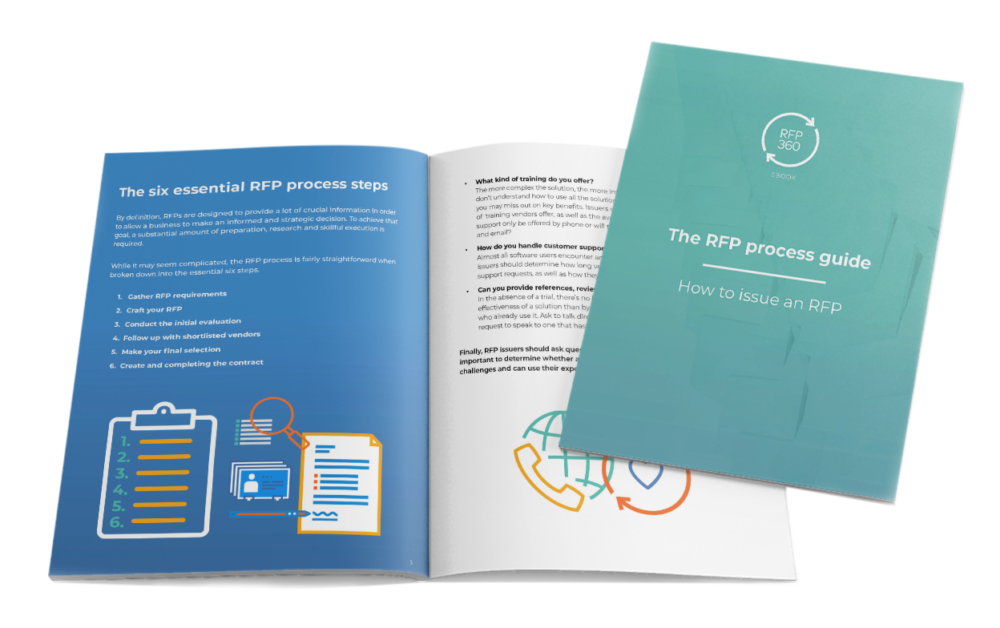Recently, you may have noticed an increase in due diligence questionnaires (DDQs). Whether you issue or respond to them, it’s crucial to get it right. Traditionally, a DDQ comes into play when an organization is considering an investment, completing a merger or assessing an acquisition. In addition, the due diligence questionnaire is now commonly used for vendor risk management.
With the increased prevalence and importance of due diligence, this refresher on DDQ basics will help you feel confident when you encounter your next one. And, with a few real-world examples, both issuers and responders can improve their process.
In this post, we’ll explore the definition of due diligence, the importance of the due diligence questionnaire, who issues them, when and why. Then, you’ll find a list of the most common kinds of due diligence questions. And, finally, we’ll offer our list of the best nine due diligence questionnaire examples.
Jump to:
- DDQ meaning: Everything you need to know
- Types of due diligence questions
- Sample due diligence questions
- Due diligence questionnaire examples
DDQ meaning: Everything you need to know
Before we jump to the DDQ examples, let’s cover a few basics. Whether you issue or respond to DDQs, it’s important to answer some basic key questions like; What is a DDQ? Why use a DDQ? Who uses DDQs? and When to use a DDQ? This background information will help you answer questions more efficiently and effectively.
What is a due diligence questionnaire?
A due diligence questionnaire, referred to by the acronym DDQ, is a list of questions designed to evaluate aspects of an organization prior to a merger, acquisition, investment or partnership. Sometimes, the due diligence questionnaire is called the due diligence checklist.
Investopedia defines due diligence as “an investigation or audit of a potential investment or product to confirm all facts, such as reviewing all financial records, plus anything else deemed material. It refers to the care a reasonable person should take before entering into an agreement or a financial transaction with another party.” It’s important to note that issuing a due diligence questionnaire is just one part of the much larger due diligence process.
Download a quick-reference DDQ checklist here.
Why do companies issue DDQs?
The goal of a due diligence questionnaire, like any security questionnaire, is to reduce risk. As a part of an investigative process, the DDQ simplifies the collection and delivery of important information that will inform the transaction. For example, the questionnaire may ask about an organization’s financial information, security policies, contractual obligations, personnel, pending legal matters and regulatory compliance.
DDQs enable organizations to gather large amounts of data quickly and efficiently. Likewise, it streamlines the disclosure process for companies providing information. While there’s no standard due diligence questionnaire, variations of the questionnaire are used globally. Consequently, many DDQs will have overlapping categories and questions.

Who issues due diligence questionnaires?
While DDQs aren’t unique to one industry, they are most extensively used in technology, government and finance. Indeed, the most common version of this questionnaire is the finance DDQ.
Additionally, you may find organizations using other DDQ variations including:
- Vendor due diligence questionnaire
- Private equity due diligence questionnaire
- Third-party due diligence questionnaire
- Hedge fund due diligence
- Investment manager due diligence checklist
- Technical due diligence
- ESG due diligence
On an individual level, many roles work together to create, issue and analyze due diligence information gathered in the DDQ. Indeed, a mix of financial, legal, mergers and acquisitions, analysts, compliance, IT and procurement professionals may participate in the process.
When do companies issue DDQs?
The due diligence process is intentionally and necessarily complex. Indeed, it is designed to dig up details and surface insights that may otherwise be overlooked. So, a DDQ isn’t a good all-purpose, information-gathering tool. It delivers the most value in the following situations.
Mergers and acquisitions (M&A) due diligence
Due diligence is crucial in M&A transactions. Prior to completing the transaction, the buy-side organization must verify that the investment is sound and will likely pay off.
Typically, the questions cover general company records, personnel information, financial data, current contract obligations and legal matters. If a company is deciding between several similar opportunities, the information can be used to compare business risks and value side by side.
Investment due diligence
Due diligence questionnaires are useful in a variety of investment situations. For example, common projects well suited to the process include some of those listed above like hedge fund due diligence, institutional investment due diligence, IPO due diligence and venture capital due diligence. Investment due diligence questionnaires explore topics like company founders, customer and supplier information, intellectual property and competitor analysis.

Vendor due diligence
The term vendor due diligence has two distinct meanings. Once you know the difference between them, it’s easy to identify each within the context of their usage.
Proactive sell-side due diligence
When a company intends to put their business up for sale, and they expect to have more than a few interested parties, they may conduct a proactive due diligence exercise. In this situation, the term refers to completing the due diligence process to investigate risks within their own company. Often, all prospective buyers receive the resulting information once they’ve signed a non-disclosure agreement (NDA). This practice speeds the sales process and allows the seller to avoid completing new DDQs for each interested buyer.
Third-party risk assessment
The second type of vendor due diligence deals with managing the risk inherent in supplier partnerships. In this scenario, buyers issue vendor DDQs to potential suppliers. These DDQs are sometimes called a third-party or vendor risk assessments.
As information security consultancy KirkpatrickPrice puts it, “No matter the vendor, they pose some level of risk to your organization – especially financial risk, operational risk, reputational risk and cyber risk – because they have access to your data, network, hardware, cloud and more.”
This vendor due diligence questionnaire requests information about vendor’s data security, financials, human resources policies and references. Vendor due diligence is often initially conducted as part of the request for proposal (RFP) process. In addition, the selected vendor must participate in ongoing due diligence.
Download the ebook to get a step-by-step guide to the RFP process.

Types of due diligence questions
To be effective, DDQs must be thorough. The responses must provide enough information to empower buyers to confidently determine whether or not to move forward. This means identifying risks, then taking action to either deem them acceptable, mitigating them or avoiding them.
Each DDQ is different, depending on the kind of project. And in some cases, a questionnaire may focus entirely on a particular type of due diligence. Financial DDQs, operational DDQs, IT DDQs and vendor DDQs are the most common examples of these category-focused, stand-alone questionnaires.
However, more often, the questions required for a comprehensive DDQ fall into several categories. These categories are subsequently centralized into a single document to suit the engagement. For instance, a hedge fund due diligence questionnaire will use a different combination of questions than an IPO due diligence questionnaire.
Categories of due diligence questions
- Company questions
- Founder and company background
- Shares and ownership information
- Employee information
- Environmental factors
- Diversity and inclusion initiatives
- Legal overview
- Financial and debt statements
- Consumer/customer information
- Industry and market insights
- Intellectual property
- Competitive intelligence
- Real estate and property holdings
- Operational information
- Regulatory compliance
- Data security and privacy
- Contractual obligations
- Administrative information
- Reputation and publicity reports
- Information technology systems
- Tax history
Sample due diligence questions
So, what DDQ questions should you ask or expect to answer? Naturally, it all depends on the engagement and your circumstances. However, here are some common questions that may be asked in a DDQ.
Due diligence questions for investment funds
- What is your overall strategy or approach to responsible investment?
- Which disclosure initiatives influence client reporting for this strategy?
- What international and industry standards or guidelines do you follow?
- How does your organization audit the quality of your policies?
- What stewardship methods does your organization use?
Vendor due diligence questions
- Do you have a business continuity plan?
- What is your pricing philosophy? How often do your prices change?
- Describe your employee screening and background check procedures.
- Do your systems meet our compliance and regulatory requirements?
- How and where do you store data, both ours and your own?
Operational due diligence questions
- Have you performed due diligence on your current vendors?
- How often is your information security policy reviewed and updated?
- Does your firm have a disaster recovery solution in place?
Intellectual property (IP) due diligence questions
- List all law firms that manage IP matters for your company.
- Which patents, patent applications and trademarks relate to the transaction?
- What confidentiality, nondisclosure or proprietary rights agreements are in place?
- Are there any product or IP exclusive rights that have been granted by your company?
9 best due diligence questionnaire examples
Many organizations find it helpful to create a standard due diligence questionnaire template for the specific types of investigations they do most often. In addition, creating a vendor due diligence questionnaire template is helpful because it should be issued quarterly or bi-annually to existing vendors. Naturally, in this situation, a template makes comparing and verifying ongoing compliance much easier.

So, whether you have a single project coming up, or many, you can use the nine examples listed below as inspiration. Each provides a great starting point to help you write effective DDQs that uncover hidden risks and financial pitfalls.
1. Limited partners DDQ
The Institutional Limited Partners Association (ILPA) provides a thorough, and periodically updated, due diligence questionnaire. The original document pulled questions from more than a dozen real-world questionnaires provided by limited and general partners as well as third parties. The downloadable DDQ example is available in Word and PDF formats.
It covers 14 crucial areas:
- General firm information
- General fund information
- Investment strategy
- Investment process
- Team
- Alignment of interest
- Market environment
- Fund terms
- Firm governance, risk and compliance
- Environmental, societal and governance
- Track record
- Accounting, valuation and reporting
- Legal and administration
- Diversity and inclusion
2. Hedge fund due diligence questionnaire
Principles for Responsible Investing (PRI) is an organization founded by institutional investors to promote responsible investment. The group provides investment tools including their own DDQ checklist example. Helpfully, PRI offers a transparent overview of the questionnaire development process.
PRI’s recommended hedge fund DDQ contains four categories:
- Policy
- Governance
- Investment process
- Monitoring and reporting
3. Business relationship DDQ
MISC issued this DDQ to ensure organizations meet its ethical standards. The questionnaire details their expectations as well as the documentation they require for compliance. MISC goes on to explain their commitment to risk management, saying:
“The due diligence process of clients lies at the heart of minimizing MISC’s risk exposure as a result of activities carried out by MISC on clients’ behalf. At minimum, the due diligence exercise on our client is to ensure that the activities performed by MISC on behalf of the client will not breach our own CoBE’s requirements.”
4. Correspondent banking DDQ
The Wolfsberg Group created a helpful correspondent banking DDQ. This due diligence questionnaire focuses on banking compliance and is designed specifically for public sector organizations. The DDQ contains questions regarding compliance in areas like anti-bribery and corruption, sanctions policies and risk management.
In addition, the Wolfsberg Group provides guidance documentation, PDF and Excel versions of the template as well as Spanish and Japanese language versions.
5. Investor and consultant DDQ
This comprehensive investor and consultant DDQ provided by INREV is a hefty 41-pages long. The INREV association is dedicated to promoting best practices, sharing knowledge and increasing transparency in the non-listed real estate investment industry.
INREV’s DDQ aims to assist “investors and consultants in the due diligence process to understand a fund manager’s structure, strategy and non-listed real estate business. It also gives insight in a specific vehicle’s strategy, risk processes, management, terms and projected performance. With it, investors can determine, in principle, whether a proposal fits their investment objectives.”
Their due diligence questionnaire template is attractive, highly organized and easy to use. The INREV website also provides helpful appendixes, translations and tools. Download it all in Word to inspire your next DDQ.
6. Environmental, societal and governance (ESG) DDQ
Invest Europe uses this sample DDQ to provide help for general partners as they seek to identify risks and maintain best practices in investing. While other questionnaires on our list deal with investment and finance concerns, this document focuses on environmental and social responsibility.
Ultimately, organizations can use the questions in this DDQ example to identify potential issues that may need further attention. Luckily, this questionnaire is helpful both before and after the investment, so there’s no wrong time to use it.
7. IPO due diligence checklist
The days, weeks and months leading up to an initial public offering are absolute chaos. Getting the right information into the right hands at the right time can make or break your venture. However, organizations can prepare by exploring this extensive due diligence checklist provided by Columbia University.
8. M&A due diligence checklist
UpCounsel created this M&A due diligence checklist guide with a mix-and-match approach in mind. Indeed, they invite organizations to use and edit the document to fit the unique needs of each project. Choose from these 19 categories and more than 200 checklist items to create your own ultimate DDQ template.
- Antitrust and Regulatory Issues
- Information Technology Concerns
- Publicity
- Outsourced Professionals
- Insurance Coverage
- Litigation
- Products and services
- Customer information
- Tax information
- Materials contracts
- Licenses and permits
- Environmental issues
- Real estate
- Physical assets
- Intellectual property
- Employees and benefits
- Good standing of company
- Financial information
- Revenue streams
9. Vendor due diligence checklist example
Procurement professionals are responsible for maximizing value while reducing risk. It’s tricky. Luckily, the best vendor due diligence checklists make finding the right fit easier. So, next time you’re issuing an RFP with a vendor DDQ, check this one-page DDQ list from KirkpatrickPrice to make sure you’ve covered all your bases.
How RFP360 can help
We know that issuing DDQs and responding to them is time consuming — that’s why our customers use our RFP software to manage the process.
The RFP360 RFP management platform allows you to securely send DDQs.
- Create custom Excel-free questionnaires with easy drop-down menus
- Track real-time vendor completion progress
- Automate proposal scoring including complex, RFP weighted scoring
- Use vendor profiles to store and organize all your vendors’ information and documents
And RFPIO’s response software empowers you to answer DDQs quickly.
- Organize content in a single knowledge library and quickly add answers to any DDQ
- Use AI to automatically suggest the best responses
- Assign, manage and track workflow tasks and deadlines
- Improve collaboration and compliance so the people work on and approve DDQs
Originally published August 18, 2018 — Updated January 26, 2023
